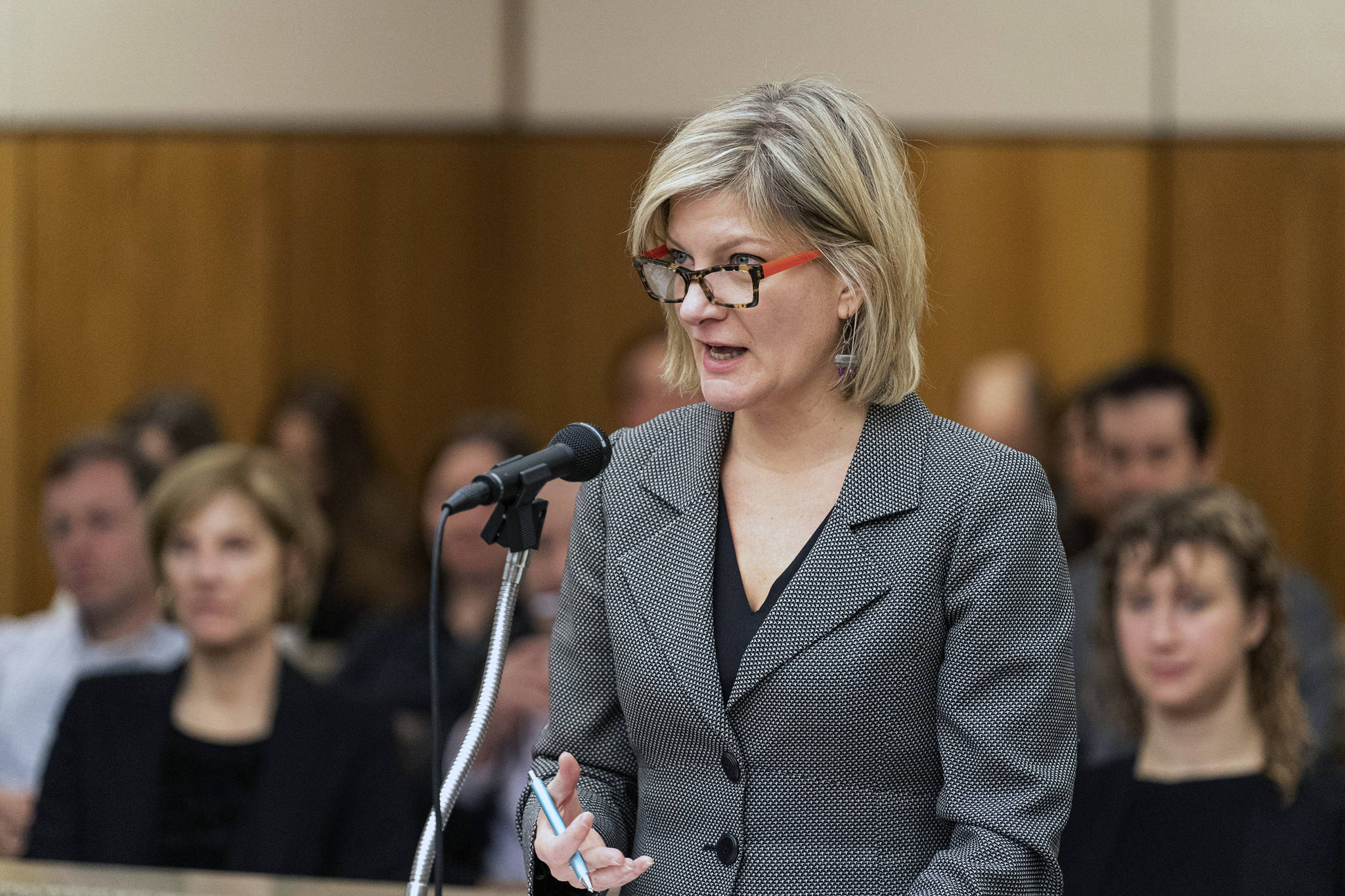An Anchorage judge last Friday ruled in favor of the Recall Dunleavy campaign and ordered the Division of Elections to move ahead with printing paperwork for the petition phase of the recall process.
“Today is so exciting because over 49,000 Alaskan voices were heard,” said Recall Dunleavy Campaign Manager Claire Pywell, referring to the number of people who signed the application. “We’re celebrating, but we know the real work begins.”
Judge Eric Aarseth made the ruling after hearing arguments on Jan. 10 in Anchorage Superior Court.
Gov. Mike Dunleavy’s administration said it will appeal a decision to the Alaska Supreme Court.
Aarseth said he will issue a final written decision by the end of the business day on Monday. That decision can then be appealed and the process can move on to the state Supreme Court.
In a phone call Friday afternoon, Assistant Attorney General Margaret Paton-Walsh said the the Department of Law would have to consult with the administration on Monday to discuss how they wanted to move forward.
“We need to consult with our client on Monday,” Paton-Walsh said, “whether we want to request a stay against the ruling.”
A stay would temporarily stop DOE from preparing petition materials until the Supreme Court’s ruling.
On Friday, Aarseth ordered the DOE to begin drafting the petitions for a recall vote, but acknowledged the state planned to appeal the decision. Aarseth said he does not intend to issue a stay against his ruling, but encouraged the state to submit one in case the higher court might.
Paton-Walsh said the state’s legal team was evaluating the ruling.
“We are a little bit disappointed the decision wasn’t upheld,” she said.
Pywell said Aarseth’s ruling confirmed the grounds of the campaign’s allegations.
The recall campaign began in August following the governor’s announcement in July he intended to veto $444 million from the state budget crafted by the legislature.
“We’ve known that he’s the wrong man for the job, he din’t just break promises, he broke laws,” Pywell said.
In its application the campaign outlined legal grounds on which Dunleavy had shown lack of fitness for office. All of those grounds were accepted by Aarseth save one: the accusation that the governor’s vetoes prevented the Legislature from upholding its constitutional responsibilities for health, welfare and education.
The Legislature still had the power to override that certain vetoes, Aarseth ruled, and struck down that part of the campaign’s allegation. However, he did not rule against the first part of that allegation which argued the governor improperly used his veto power to attack the judiciary.
Lawyers for the Recall Dunleavy campaign, the State of Alaska, and Stand Tall with Mike, a private Dunleavy support organization named as an intervener in the case, made brief arguments in court, ending just before noon.
Representing the recall campaign, former Attorney General Jahna Lindemuth argued the state had denied the application by “changing the rules of the game.”
The DOE and Attorney General Kevin Clarkson had raised the standards previously established by Alaska case law in order to deny the application, Lindemuth argued.
Aarseth ultimately agreed with that argument in his decision. If Aarseth were to have ruled in favor of the state, those raised standards would have become legal precedent.
“The court is of the opinion that it does not have the discretion to create more requirements,” Aarseth said.
The state previously denied the recall campaign’s allegation Dunleavy had violated Alaska law in refusing to appoint a Palmer Superior Court judge by saying no specific harm was demonstrated.
“Specific definition of harm is not a requirement,” Aarseth said. “Whether or not it is an important failure or not, the nature of the failure is up to the voters to weigh.”
In a statement, Assistant Attorney General Cori Mills said the case addressed important issues which need to be addressed by the Supreme Court.
“All sides knew that is where this case was headed,” Mills wrote.
In an email Friday afternoon, Dunleavy spokesperson Jeff Turner said the administration was preparing a public statement to be delivered soon. No statement was released before end of the business day Friday.
Contact reporter Peter Segall at 907-523-2228 or psegall@juneauempire.com.


